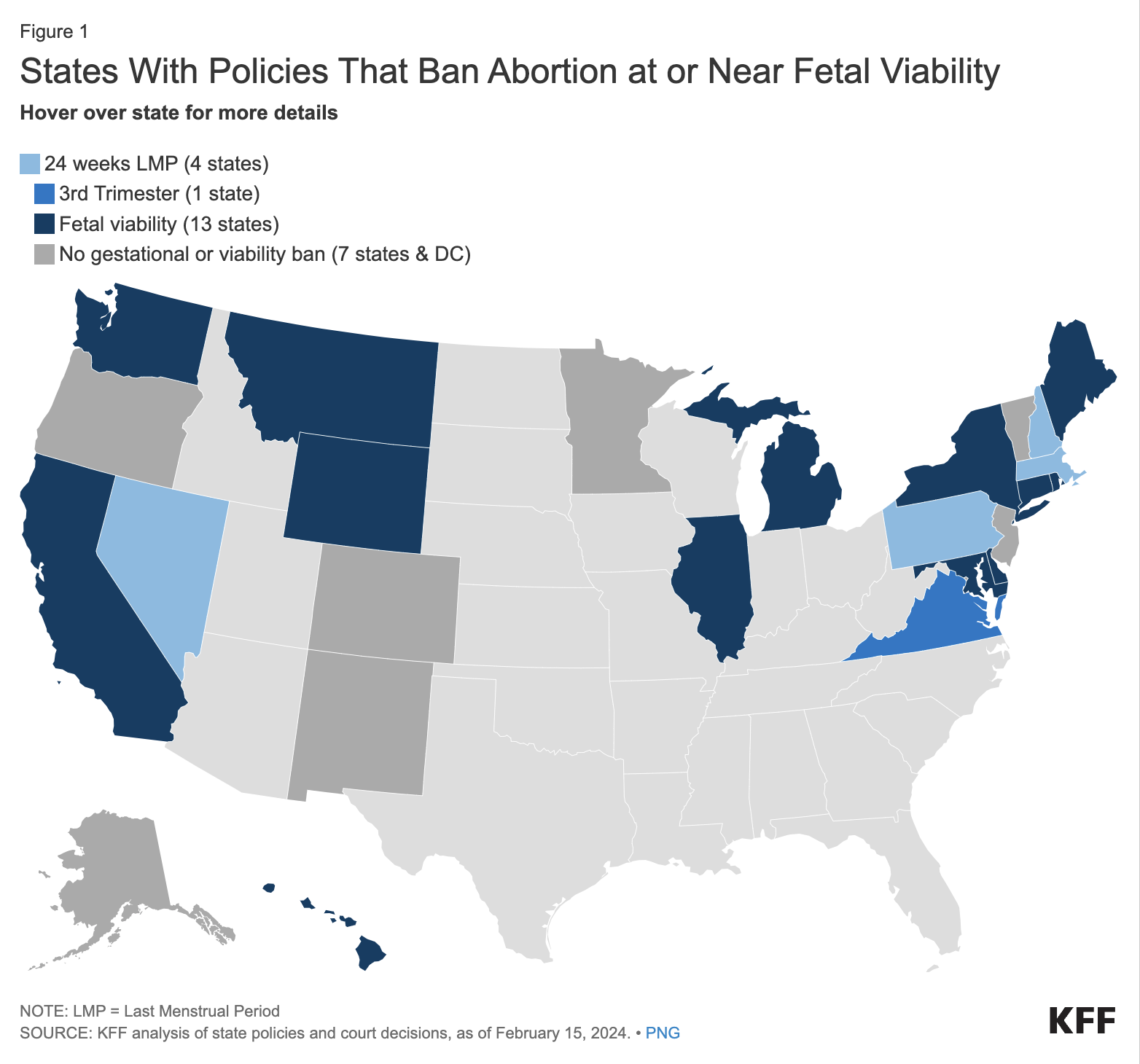
There is much discourse on the subject of late-term abortions. Choice advocates insist that late-term abortions simply do not happen. Is this true? We explore this topic further and share some of the illuminating facts about late-term abortions:
What Is a Late-Term Abortion?
While there is no definitive timeline for a “late-term abortion”, most use this term to refer to an abortion performed after 20-21 weeks gestation (between the end of the second trimester and birth).
How Often Do They Occur?
According to the CDC, in 2021 almost 1% of reported legal abortions occurred after 21 weeks gestation — that equates to over 6,200 abortions. This is an estimate since the United States does not require national reporting of abortions. Following the overturn of Roe in June 2022, 1 state allows abortion until the third trimester and 7 states have no gestational limits.

(Source: KFF)
Late-Term Fetal Development
Because late-term abortions do happen, it’s important to consider what fetuses look like and are capable of after 21 weeks in utero. Curtis Means is the youngest baby to survive thus far. He was born at only 21 weeks and one day gestation.
The well-respected Merriam-Webster Dictionary defines “viability” as “the ability to live, grow, and develop.” Medical professionals say fetuses are likely to survive outside the womb by 23-24 weeks.
Between 21 weeks gestation and birth, a fetus:
- grows hair
- develops lungs
- further develops their nervous system
- gains body fat
- opens and blinks its eyes
- develops more brain functions
- controls its own body temperature
- develops thicker skin and stronger bones
- and so much more!
Sounds very human, don’t you think?
Are All Late-Term Abortions Medically Necessary?
Following long-established medical practice and law, the woman’s life rightly takes precedence in a situation where her life is at risk. Every pro-life law has this protection. However, most late-term abortions are NOT for reasons of life endangerment or fetal anomaly.
Rather, research indicates common reasons are delays in recognizing the pregnancy, hesitancy in deciding about the abortion, disagreeing with the man involved, and difficulty with the logistics of the abortion. Late-term abortions as with earlier stage abortions are performed mainly for elective reasons – not medical reasons.
Can we justify elective abortions when they take an innocent human life?
Learn more about the various stages of fetal development (conception, first, second, and third trimester) and don’t forget to follow us on social media (Facebook, Instagram, and TikTok).